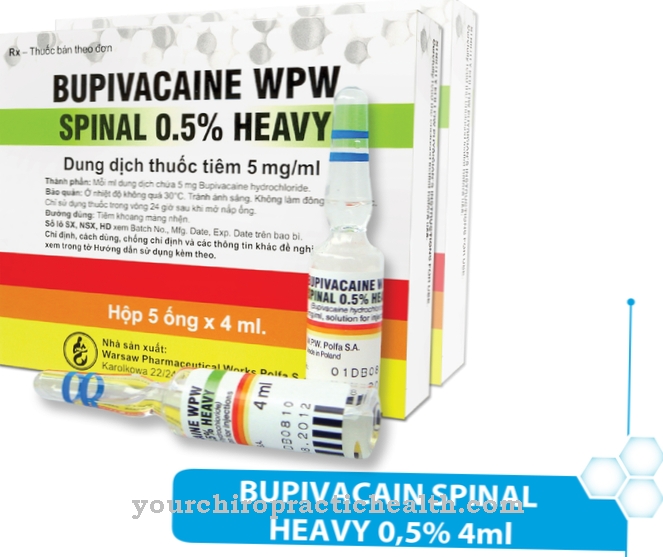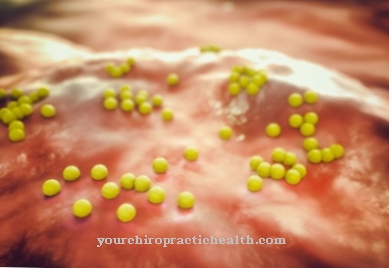Artesunate is an active ingredient used to treat malaria. The tropical infectious disease is caused by pathogens of the genus Plasmodium and kills 1 million worldwide every year. As studies show, the active ingredient could in future also be used to treat malignant - that is, malignant - tumors.
What is artesunate?

The drug artesunate belongs to the antiprotozoic drug class and is made from the plant derivative of the annual mugwort (Artemisia annus). The artesiminine contained in the leaves and flowers of mugwort has been used in traditional Chinese medicine for thousands of years.
In recent years, the active plant ingredient has also moved into the focus of western medicine. In 2002, the artesunate synthesized from it was added to the list of indispensable medicinal products by the WHO. The drug is mostly used against malaria tropica with the pathogen Plasmodium falciparum, which is characterized by a severe course. Artesunate is also highly efficient against multi-resistant malaria pathogens that no longer respond to common malaria preparations.
Pharmacological effect
The malaria is transmitted by the bite of the Anopheles mosquito. The pathogens first settle in the liver, attack the red blood cells (erythrocytes) and destroy them. The active ingredient artesunate reaches the mitochondria of the pathogen cell directly. Mitochondria are found in all cells and are the "productive powerhouse" of every cell.
The so-called peroxide bridges in the chemical structure of the active ingredient play a decisive role in the pharmacological-biological effectiveness of artesunate. They give off a high concentration of oxygen radicals that attack the mitochondria and cause the pathogen's cell death. The drug also works against cancer cells. Tumor cells contain iron ions in high concentrations. They react chemically with the oxygen radicals and cause the cell to die.
Artesunate also appears to be able to prevent the formation of blood vessels that supply the tumorous tissue. It counteracts the formation of metastases. Due to a slightly changed biochemical basic structure, the derivative artesunate shows a significantly higher bioavailability than the original substance artesiminine. The bioavailability provides information on how quickly and to what extent a drug is absorbed by the organism and made available to the body. Artesunate has a very short half-life. It is quickly metabolized by the liver and cleared from the body in a few hours.
Medical application & use
Especially in severe cases, the artesiminin derivative significantly lowers the death rate of those suffering from malaria. Of 1,000 malaria patients who were treated with artesunate, only 147 died instead of 241 of those treated with the common anti-malarial drug quinine. So far, artesunate drugs have only been used in adults.
The latest studies show that children will soon be able to benefit from the active ingredient. Various studies indicate that artesunate could also be used in cancer therapy in the future. It has been shown that the active ingredient is a promising drug for malignant tumors. Cancer cells have hardly anything to counter the oxidative stress caused by the oxygen radicals. The drug is particularly effective on rapidly growing tumors. They have a particularly high number of iron ions.
Scientists from Singapore also attribute better efficacy against asthma to the substance than the commonly prescribed corticosteroids. Artesunate is usually used as a combination preparation against malaria to prevent possible resistance. In severe tropical malaria, the active ingredient is usually administered intravenously as an infusion, but is also available in tablet form.
Risks & side effects
The effect of artesunate is selective. This means that it has a toxic effect on tumor cells and malaria pathogens that contain a lot of iron, but has no negative effects on healthy cells.
The medicinal substance artesunate is considered to be well tolerated. The side effects known to date are limited and are usually easy to control. The side effects of taking artesunate also depend on the drug combination in which it is available.
The most common side effects are headache, insomnia, drowsiness and weakness - but nausea, vomiting and diarrhea can also occur. In rare individual cases, hemolysis - the breakdown of red blood cells - results in anemia.



























